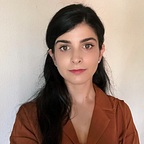Quiet Deaths of Monkeypox
Earlier this year, an outbreak of monkeypox spread rapidly across the globe with devastating outcomes. The CDC declared a state of emergency months after the outbreak began, but the damage was already done — monkeypox was blazing through sexual networks, and our chance of eliminating it long passed. The US was ill-prepared to prevent the infection despite having plans for an orthopox (a family of pox viruses) outbreak following 9/11 due to fears of a smallpox bioterrorism attack. Plans had been made, but the vaccine sat in a warehouse abroad and treatment was only available for emergency use.
Then in September, cases began to decline. After a summer of vaccinations, and grassroots health messaging from connected community organizations in places where health departments were failing, the US dropped from over 4,000 cases per week to less than 2,000. It is likely that monkeypox may never truly go away with routine flare-ups through sexual networks, but otherwise, public health officials are relieved by the waning cases.
However, from September through October, six individuals across the US have died due to monkeypox complications.
Most Americans hospitalized for monkeypox had weakened immune systems, many due to HIV. HIV lowers the power of the immune system, giving life-threatening opportunistic infections like monkeypox a chance to take over. Previous outbreaks of monkeypox caused poor health outcomes among people living with HIV, and this outbreak is shaping up to have similar outcomes.
The CDC observed 57 patients hospitalized for monkeypox, of which 12 died, from August through October. (Monkeypox is listed as the cause of death or a contributing factor for five of those deaths, and the remainder are still under investigation with one ruled out). Over 80% of those hospitalized from monkeypox are living with HIV. Many of these patients are Black men who are least likely to receive the monkeypox vaccine. This highlights the vast inequity of outreach and services for vulnerable and underserved populations.
We still don’t have all of the vaccines we need, five months past the government’s emergency declaration for monkeypox. Instead, the CDC shifted to minimizing the amount of vaccine administered per vial per person to stretch the smaller stockpile we have available within the US. That’s been the gist of the response to the outbreak: we were ill-prepared, and we shifted to do what we could without ever doubling back to address our errors. National response has been lacking, resulting in the death of six people while we declared the epidemic subsided. Better outreach, strong public health messaging, and widely offered vaccines could have prevented these quiet deaths.
AIDS Healthcare Foundation is the largest provider of HIV/AIDS medical care in the world, providing cutting-edge medicine and advocacy to over 1,600,000 people in 45 countries. Find out if there is a site near you for HIV, STD, and monkeypox care.
